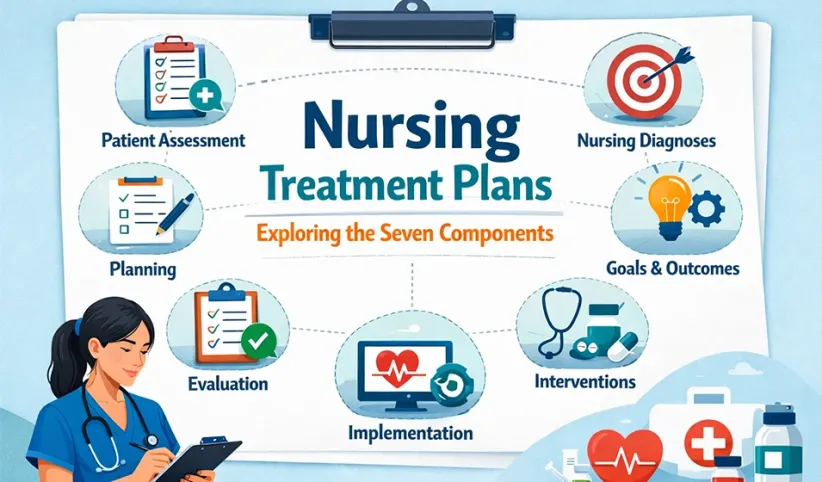A reflection paper refers to having an interactive dialogue with oneself. It’s a detailed process where a writer asks themselves questions about the research process, their opinions, conduct, and biases.
Writing a reflective scholarly paper can be intimidating at first. People often wonder, “What exactly do I need to reflect on?” “What am I trying to achieve?” “How can I make it sound academic?”
The answer to all of these questions is this blog.
So, grab a cup of coffee before we start!
What is a Reflective Scholarly Paper?
A reflective scholarly paper is one of the kinds of academic tasks, where one has to analyze their own thoughts, experiences, and learnings.
Also, the key to reflective writing is to be analytical rather than descriptive. So, look for possible reasons and address: why, when, who, and how in your writing.
The best part about writing it? It’s based on your opinions, so there’s no right or wrong answer.
However, it’s important to connect your thoughts with academic theories or concepts.
For instance, a nursing student might reflect on a clinical placement. So, discuss what went well or what was challenging. And then relate it to nursing theories or best practices.
How to Write a Winning Reflection Paper
If you are staring at the cursor on a blank Word document, wondering how to start your scholarly reflection paper, below are the steps:
Choose an Experience or Topic
First things first—you have to pick the right topic or personal experience on which you want to reflect. Also, it’s best to pick an experience that had an impact on you.
For instance, a project you have assisted with, a personal story of patient care, or anything else.
Understand the Topic
Read the articles thoroughly before you write your reflection scholarly paper. In addition, the key is to highlight your key ideas and thoughts. Hence, always understand the topic for it.
Also, look for writing guidelines such as word count, structure, references, or any theories that can improve the quality of your content.
Use a Reflective Model
A reflective model can help you structure your ideas. Out of many, the most popular are Gibbs, Schon, and Johns.
The Gibbs six cycles are:
- Description: What happened?
- Feelings: How did you feel?
- Evaluation: What are your feelings? Good or bad?
- Analysis: Why did things turn out to be like this?
- Conclusion: What did you learn?
- Action Play: How differently would you act next time?
Key point:
To use these models in your writing, the first step is to understand them completely. So, if you are confused about applying any of these to your content, then the best way is to get nursing assignment writing service from experts.
Link to Theories and Literature
This is what makes your reflection “scholarly.”
Don’t just describe your feelings — explain them by referring to theories, models, or research. For instance, if you felt stressed during a presentation, you might discuss communication theories or research on public speaking anxiety.
Be Honest and Critical
A sign of a good reflection paper is “honesty.” In addition, you must share all the factors that went right and wrong.
And it’s important to know that being critical doesn’t mean to criticize harshly. Instead, it means thinking deeply about what worked and what didn’t.
Proofread and Edit
Once you have completed the writing, give yourself a break. And with a fresh look, review your task to spot the errors.
So, check for:
● Uncleared sentences
● Spelling
● Grammar mistakes
● Awkward or illogical flow
● Credibility of the material
Reflection Paper Format
Here’s a typical reflection paper format used for almost every essay:
Introduction
This section conveys the purpose of writing the paper. So, give readers the insight about your topic and the reasoning behind your choice of that topic.
To write a good introduction, you must:
● Stay professional
● Be concise and coherent
● Analyze the theme of the topic
Main Body
The main body paragraphs present an in-depth analysis of your thesis statement. In addition, this section usually has 3-4 paragraphs.
So, make sure to:
- Include direction references and quotations
- Examples to support your argument
- Highlight a key point, discuss, and share how it influenced you
- Each paragraph should discuss a new idea
- Begin each paragraph with a topic sentence
Conclusion
And here comes the conclusion of your reflection scholarly paper. In addition, you only have to summarize your key points and restate the thesis statement. Furthermore, avoid adding any piece of information in this section.
Wrap Up!
Writing a reflective scholarly paper is a great way to jot down your thoughts and connect them with relevant theories. Also, by following a clear structure, being honest, and linking your experiences to academic knowledge, you can create a strong and insightful paper.
So, next time when you are assigned to write it, remember: it’s not about what you did. Instead, the focus is on what you learned and aim to improve!
Good luck with your writing!











